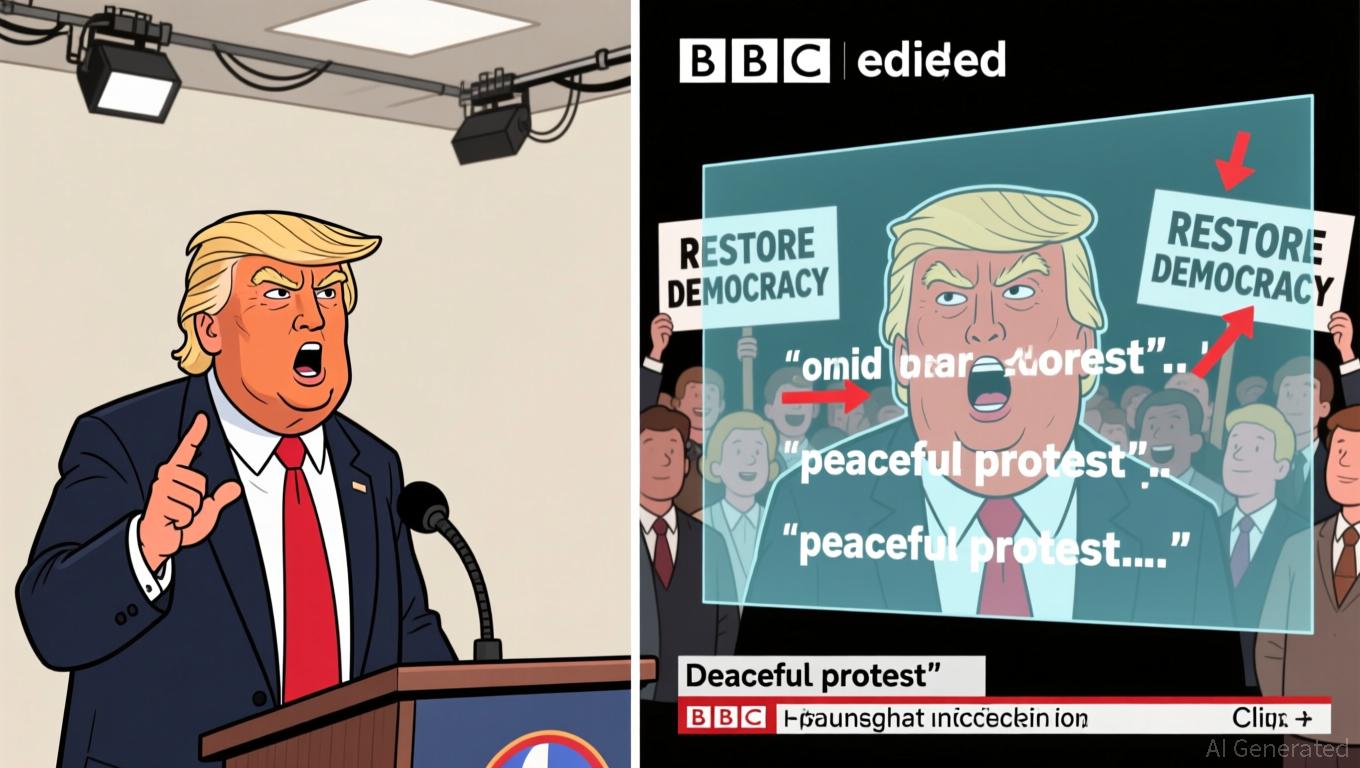Brazil's Approach to Crypto Regulation: Combating Crime and Enhancing Investor Confidence
- Brazil's Central Bank (BCB) introduced strict crypto regulations requiring VASPs to obtain authorization by Feb 2026, with non-compliant firms facing closure by Nov 2026. - Stablecoin transactions are reclassified as FX operations under new rules, subject to transparency requirements and a $100,000 cap on unapproved cross-border transactions. - The framework mandates robust AML controls, cybersecurity, and compliance frameworks for VASPs, aiming to curb fraud and position Brazil as Latin America's crypto
Brazil Implements Extensive Crypto Regulations to Oversee Digital Asset Industry
The Central Bank of Brazil (BCB) has introduced a far-reaching set of rules designed to place cryptocurrency companies and stablecoin activities under tight regulatory supervision, representing a significant move to bring the country’s digital asset market in line with conventional banking practices. Starting February 2026, all virtual asset service providers (VASPs)—such as exchanges, custodians, and brokers—must obtain approval from the central bank to operate. Firms that fail to comply will be forced to shut down by November 2026,
A key aspect of the legislation is the reclassification of stablecoin transactions as foreign exchange (FX) operations, making them subject to the same transparency and regulatory standards as traditional currency exchanges,

The new framework also sets a $100,000 ceiling on transactions with unregistered parties, including international payments and transfers,
To comply, VASPs must implement strong governance, cybersecurity, and risk management systems similar to those required of traditional banks,
Brazil’s digital asset industry has grown rapidly, with $318.8 billion in transactions recorded between July 2024 and June 2025—accounting for nearly a third of all crypto activity in Latin America,
The BCB’s regulatory strategy follows international trends, as countries like the U.S., EU, Singapore, and UAE also work to integrate stablecoins into their financial systems,
Although these rules may increase compliance costs for smaller operators, regulators are confident that the measures will create a safer and more transparent environment for digital assets,
Disclaimer: The content of this article solely reflects the author's opinion and does not represent the platform in any capacity. This article is not intended to serve as a reference for making investment decisions.
You may also like
Why the COAI Index Is Plummeting in November 2025
- COAI Index plunged in Nov 2025 amid AI sector-wide selloff linked to C3.ai's leadership crisis and lawsuits. - C3.ai's $116M Q1 loss, CEO transition, and class-action lawsuit triggered toxic sentiment across crypto AI assets. - CLARITY Act's regulatory ambiguity worsened volatility by leaving AI crypto projects in legal gray areas. - Investors advised to hedge AI/crypto AI exposure through sector rotation and diversification into less correlated tech sectors.

As the BOJ Scales Back, Stablecoins Set Sights on Leading the JGB Market Amid Japan's Financial Transformation
- JPYC, Japan's first domestic stablecoin issuer, plans to allocate 80% of reserves to JGBs as BOJ tapers bond purchases. - Aims to issue ¥10 trillion in yen-pegged stablecoins over three years, potentially becoming largest JGB holders within years. - FSA supports yen-pegged stablecoin projects, but policymakers warn of risks to traditional banking systems and monetary policy control.

Trump's legal action against the BBC sparks a debate on journalistic ethics and the responsibility of the media in a democracy
- Trump sues BBC over edited Jan. 6 speech in Panorama documentary, demanding $1B in damages and a retraction. - BBC admits "systemic error" in splicing Trump's remarks to imply incitement, prompting resignations of top leaders. - Legal experts question lawsuit viability under U.S. defamation law, noting risks of exposing Trump's own incendiary rhetoric. - Critics argue Trump's legal actions against media aim to suppress critical coverage, threatening press freedom and editorial independence. - The case re

Self-driving truck company Einride intends to enter the public market through a SPAC merger